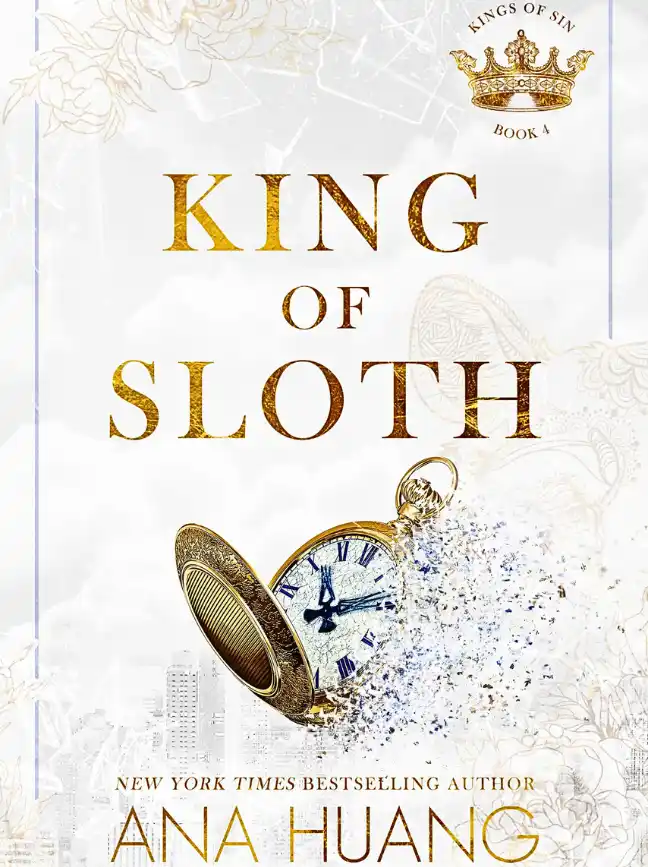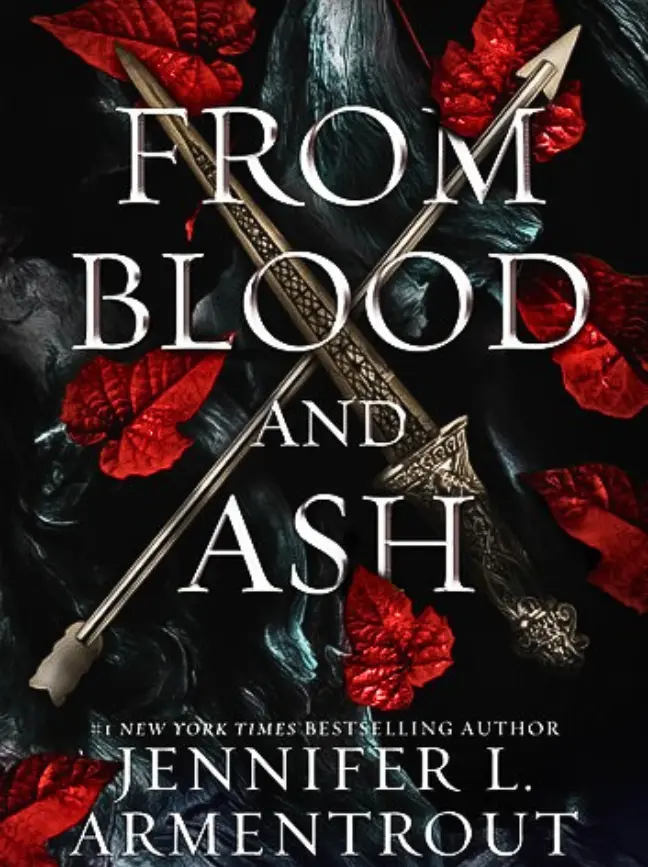Slaves? Pino thought, feeling repulsion and pity at the same time. “How did you get here?” he asked. “Are you Jewish?”
“There are some Jews here, but not me,” Antonio said. “I was with the resistance. Fought in Turin. The Nazis captured me, sentenced me to this instead of the firing squad. The others are Poles, Slavs, Russians, French, Belgians, Norwegians, and Danes. The letters sewn on their chests tell you where they’re from. In every country the Nazis invade and conquer, they take all able-bodied men and send them into slavery. They call it ‘forced labor,’ or some such bullshit, but it’s slavery any way you look at it. How do you think the Nazis built so many things so fast? All the coastal fortifications in France? And the big defenses down south? Hitler’s got a slave army, that’s how, just like the pharaohs did in Egypt, and—Jesus, son of Joseph, it’s Pharaoh’s slave master himself!”
Antonio whispered this last bit, looking in fear past Pino deeper into the tunnel. Pino turned. General Leyers was coming at them, staring at the water bucket and ladle in his hand. Leyers barked at the guards in German. One jumped to take back the water.
“You are my driver,” he said as he stomped past Pino. “You do not serve the laborers.”
“I’m sorry, mon général,” Pino said, hurrying after him. “They just looked thirsty, and no one was giving them water. That’s just . . . well, stupid.”
Leyers spun around in his tracks, got in Pino’s face. “What is stupid?” “Keeping water from a working man makes him weak,” Pino
stammered. “You want them to work faster, you give them more water and food.”
The general stood there, nose to nose with Pino, peering into his eyes as if trying to see into his soul. It took every bit of Pino’s spirit not to look away.
“We have policies about the laborers,” Leyers said curtly at last, “and food is hard to come by these days. But I’ll see what I can do about the water.”
Before Pino could blink, the general had turned and marched on. Pino’s knees felt wobbly as he followed Leyers out into the bright, hot summer day. When they reached the Daimler, the general asked for the notepad. He tore out the pages Pino had written on and put them in his briefcase.
“Lake Garda, Gargnano, north of Salò,” Leyers said, and started in again on the seemingly inexhaustible number of folders and reports that came out of his valise.
Pino had been to Salò once, but couldn’t remember how to get there, so he consulted a detailed map of northern Italy that the general had in the glove compartment. He found Gargnano about twenty kilometers north of Salò on the west shore of the lake, and plotted his route.
He fired up the staff car, and they went rumbling back across the pasture. The air was shimmering and hot when they reached Bergamo. They stopped at a Wehrmacht encampment for petrol, food, and water shortly after noon.
Leyers ate as he worked in the backseat and somehow managed not to get a scrap of food on him. Pino turned off the highway and headed north along the western shore of Lake Garda. There wasn’t even the hint of a breeze. The water had a mirror finish that seemed to reflect and magnify the Alps towering above the lake’s north end.
They passed through fields of golden flowers and by a church ten centuries old. He glanced in the mirror at the general and realized he hated Leyers. He was a Nazi slave driver. He wants Italy destroyed, and then rebuilt in Hitler’s image. He works for Hitler’s architect, for God’s sake.
Part of Pino wanted to find a secluded spot, get out, pull his gun, and kill the man. He would head for the hills, join one of the Garibaldi partisan units. The powerful General Leyers dead and gone. That would be
something, wouldn’t it? That would change the war, wouldn’t it? At some level?
But Pino knew almost instantly in his gut that he was no assassin. He did not have the ability to kill a man, even a man like—
“Put up my flags before you reach Salò,” Leyers said from the backseat.
Pino pulled over and rehung the flags on the front fenders so they snapped and popped as they drove through Salò, and continued on. It was oppressively hot. The lake water looked so inviting, Pino wanted to pull over and dive in with his uniform and bandages on.
Leyers seemed unaffected by the temperature. He’d taken off his jacket, but did not loosen his tie. When they reached Gargnano, Leyers directed him away from the lake through a series of tight streets to a gated estate on a hill guarded by Fascist Black Shirt commandos carrying machine pistols. Taking one look at the Daimler and the red Nazi flags, they opened the gate.
A driveway curved around to a sprawling villa covered in vines and flowers. There were more Black Shirts there. One gestured for Pino to park. He did, got out, and opened the rear door. General Leyers climbed out, and the Fascist soldiers acted like they’d been stuck with a cattle prod, going ramrod straight and looking anywhere but at him.
“Stay with the car, mon général?” Pino said.
“No, you come with me,” he said. “I didn’t arrange for a translator, and this will be quickly done.”
Pino had no idea what Leyers was talking about, but he followed him past the Black Shirts to an archway. Stone steps climbed toward a villa with blooming garden beds on either side. They reached a colonnade along the front of the villa and walked down it toward a stone terrace.
General Leyers walked around the corner onto the terrace, came up short, cracked his heels together, and took off his hat before dropping his head in studied deference.
“Duce.”
Pino walked up behind the Nazi, wide-eyed in disbelief. Not five meters from him stood Benito Mussolini.
The Italian dictator wore tan riding breeches, high-glossed boots that hit him below the knee, and a white tunic opened well down his chest, revealing gray hair and the beginnings of an old man’s belly that strained against the lower buttons of the shirt. Il Duce’s great bald head and the skin above his famous jawline were flushed. He held a glass of red wine. There was a half-empty carafe of wine on the table behind the dictator.
“General Leyers,” Mussolini said, nodding, and then turning his rheumy eyes on Pino. “Who the hell are you?”
Pino stammered, “Today I am the general’s interpreter, Duce.”
“Ask him how he is,” Leyers said to Pino in French. “Ask him how I can be of help today.”
Pino did so in Italian. Mussolini threw his head back and roared with laughter, then sneered. “How is Il Duce?”
A brunette with formidable breasts bulging against a sleeveless white blouse came out onto the terrace. She wore sunglasses and also carried a glass of wine. A cigarette smoldered between her ruby lips.
Mussolini said, “Tell them, Clara. How is Mussolini?”
She took a drag, blew smoke, then said, “Benito is feeling pretty shitty these days.”
Pino tried not to gape. He knew who she was. Everyone in Italy knew who she was. Claretta Petacci was the dictator’s notorious mistress. Her picture was always in the papers. He couldn’t believe she was there right in front of him.
Mussolini stopped laughing, turned dead serious, looked at Pino, and said, “Tell the general that. Tell him Il Duce is feeling pretty shitty these days. And ask him if he can fix the things that make Il Duce feel shitty.”
Pino translated. Irritated, Leyers said, “Tell him, maybe we can help each other. Tell him, if he sees about ending the strikes in Milan and Turin, I’ll do what I can for him.”
Pino gave it to Mussolini word for word.
The dictator snorted. “I can end the strikes if you pay my workers in hard currency, and make them safer.”
“I’ll pay them in Swiss francs, but I can’t control the bombers,” Leyers said. “We have moved many factory operations underground, but there are not enough tunnels to make them all safe. In any case, as far as Italy is concerned, we are at a turning point in the war. The latest intelligence indicates as many as seven Allied divisions were moved out of
Italy to France following the invasion there, which means my Gothic Line will hold through the winter if I can keep it supplied. But I cannot be assured of that happening if I do not have competent machinists to turn out weapons and parts. So can you end the strikes for me, Duce? I’m sure the führer will be pleased at your support.”
“Done with a phone call,” Mussolini said, snapped his fingers, and poured more wine.
“Excellent,” General Leyers said. “What else can I help you with?” “How about control of my country?” the dictator said bitterly, picking
up his glass and draining it.
After Pino translated, the general took a long breath and said, “You have much control, Duce. It’s why I came to you to stop the strikes.”
“Il Duce has much control?” Mussolini said, thick with sarcasm and glancing at his mistress, who nodded encouragement. “Then why are my soldiers in Germany digging ditches or dying on the eastern front? Why no meetings with Kesselring? Why are decisions being made about Italy without its president at the table? Why won’t Hitler pick up the goddamned phone?”
The dictator shouted the last question. Leyers seemed unruffled as Pino translated.
Leyers said, “I can’t presume to know why the führer hasn’t taken your calls, Duce, but fighting wars on three fronts is a busy business.”
“I know why Hitler won’t take my goddamned calls!” Mussolini bellowed, and slammed his glass on the table. He glared at the general and then Pino in a way that made Pino wonder if he should retreat a step or two. “Who is the most hated man in all of Italy?” Mussolini said, directing the question at Pino.
Flustered, Pino didn’t know what to say, but then started to translate.
Mussolini cut him off, still talking to Pino, slapping his chest and saying, “Il Duce is the most hated man in Italy, just like Hitler is the most hated man in Germany. But, you see, Hitler, he does not care. Il Duce cares about his people’s love, but Hitler doesn’t give a dog’s turd for love. All he cares about is fear.”
Pino was doing his best to keep up when the dictator seemed to come to some kind of revelation. “Clara, do you know why the most hated man in Italy is not in control of his own country?”
His mistress stubbed out a cigarette, blew smoke, then said, “Adolf Hitler.”
“That’s right!” Il Duce cried. “It’s because the most hated man in Germany hates the most hated man in Italy! It’s because Hitler treats his Nazi shepherd dogs better than he treats the president of Italy! Keeps me locked up in the middle of—”
“I don’t have time for this madness,” General Leyers snapped at Pino. “Tell him I will see about a meeting with Field Marshal Kesselring in the next few days, and to expect a call from the führer within the week. It’s the best I can do for now.”
Pino translated, expecting another explosion from Mussolini.
Instead, these concessions seemed to please the dictator, who began to button his tunic, saying, “How soon with Kesselring?”
“I am on my way to meet with him now, Duce,” Leyers said. “I’ll have his aide call before nightfall. Herr Hitler’s attention may take a little longer to attract.”
Mussolini nodded in a statesmanlike manner, as if he’d gained back some of his illusory power and now planned to use it on the cosmos.
“Very good, General Leyers,” Mussolini said, checking his cuffs. “I shall have the strikes ended before nightfall.”
Leyers clicked his heels, dropped his head, and said, “I’m sure the field marshal and the führer will be pleased. Thank you again for your time and influence, Duce.”
The general pivoted and strode away. Pino hesitated, not quite sure what to do, and then bowed quickly to Mussolini and to Claretta Petacci before bolting after Leyers, who had disappeared around the corner and onto the colonnade. He caught up to him and walked at the general’s right shoulder until they’d almost reached the staff car, when he hurried ahead and opened the rear door.
General Leyers hesitated, studied Pino for several seconds before saying, “Well done, Vorarbeiter.”
“Thank you, mon général,” Pino sputtered.
“Now get me out of this insane asylum,” Leyers said, and climbed inside. “Take me to the telephone exchange in Milan. Do you know it?”
“Yes, of course, mon général,” Pino said.
Leyers unlocked the valise and engrossed himself in his work. Pino drove in silence, glancing at the rearview mirror and arguing with himself.
When the general had complimented him, he’d swelled with pride. But now he was wondering why. Leyers was a Nazi, a slave driver, a master builder of war. How could Pino feel pride when the compliment had come from someone like that? He couldn’t. He shouldn’t. And yet he had, and it bothered him.
By the time they reached the outskirts of Milan, however, Pino had decided to feel proud of how much he’d learned driving General Leyers for little more than half a day. His uncle wouldn’t believe it. He’d actually talked to Mussolini and Claretta Petacci! How many spies in Italy could say that?
Pino took the route Hannibal had followed with his war elephants and got them to Piazzale Loreto in record time. He took the roundabout, seeing Mr. Beltramini at his post out in front of the fruit and vegetable stand where he was helping an older woman. Pino wanted to wave as he went by, but when he tried to take a right, a German lorry cut him off. They almost crashed. He was able to swerve the staff car out of the way in the nick of time.
He couldn’t believe the driver had done that. Hadn’t they seen—?
The flags. He’d forgotten to put up the general’s flags upon entering Milan. He’d have to make another loop around the rotary. As he did, he saw Carletto walking on the sidewalk toward one of his favorite cafés.
Pino sped up, made the turn onto Viale Abruzzi without incident, and was soon parked at the telephone exchange, which was heavily guarded. The heavy Nazi presence puzzled him at first, until he thought that he who controlled the telephone exchange controlled communication.
“I have three hours of work to do here,” General Leyers said. “You do not have to wait. No one would dare touch the car here. Be back at seventeen hundred hours.”
“Oui, mon général,” Pino said, and opened the rear door.
He waited until Leyers was inside, and then headed back toward Piazzale Loreto and Beltramini’s Fresh Fruits and Vegetables. In less than a block, he’d endured enough vile looks to realize he’d be smart to take off the swastika armband and stick it in his back pocket.
That made things better. People barely gave him a glance. He was in uniform, and he wasn’t SS or Wehrmacht. That was all they would care about.
He broke into a trot. He could see Mr. Beltramini, right there up ahead, putting grapes in a sack. But he really wanted to see Carletto. It had been four months, and he had so much to tell his old friend.
Pino cut across the street in front of German lorries traveling in a convoy, and took a right. Scanning the sidewalk ahead, he found Carletto sitting with his back to him.
Pino broke into a grin, walked up, and saw Carletto was reading. He pulled back a chair and sat down, saying, “Hope you’re not waiting for an elegant young lady.”
Carletto looked up. At first his friend looked wearier and more scarred than Pino remembered even in late April. But then Carletto recognized him and cried out, “Oh my God, Pino! I thought you were dead!”
He jumped up and hugged Pino fiercely. Then he pushed Pino back to look at him with misty eyes. “I really did.”
“Who said I was dead?”
“Someone told Papa you were guarding the Modena train station when a bomb hit. They said part of your head was taken off! I was devastated.”
“No, no!” Pino said. “That was the guy with me. I almost lost these.” He showed him the bandaged hand and wiggled the reattached fingers.
Carletto clapped him on the shoulder and grinned. “Just knowing you are alive,” he said. “I think I’m happier than I’ve ever been!”
“Good to be back from the dead.” Pino smiled. “You ordered?” “Just espresso,” Carletto said, taking his seat again.
“Let’s eat,” Pino said. “I got paid before I left the hospital, so it’s on
me.”
That made his old friend even happier, and they ordered melon balls
wrapped in prosciutto, salami, bread, garlic-infused olive oil, and a cold tomato soup that was perfect in the stifling heat. As they waited for their meal to arrive, Pino caught up on the last four months of Carletto’s life.
Because of Mr. Beltramini’s contacts outside the city, his fruit and vegetable stand continued to prosper. It was one of the few places in the city that had a reliable flow of produce, and it often sold out before closing. Carletto’s mother was another story.
“Some days are better than others, but she’s weak all the time,” Carletto said. Pino could see the strain on him. “She got real sick last month. Pneumonia. Papa was heartbroken, thinking she was going, but somehow she rallied and beat it.”
“That’s good,” Pino said as the waiter started setting plates on the table. His eyes drifted past Carletto, back toward the fruit stand. Between gaps in the German lorry convoy, he caught glimpses of Mr. Beltramini serving a customer.
“So, is that the new Fascist uniform, Pino?” Carletto asked. “I don’t think I’ve seen it before.”
Pino started chewing the inside of his cheek. He’d been so ashamed of enlisting in the German army, he’d never told his friend about the Organization Todt.
Carletto went on. “And why were you in Modena? Everyone I know is headed north.”
“It’s complicated,” Pino said, wanting to change the subject. “What’s that mean?” his friend asked, eating one of the melon balls. “Can you keep a secret?” Pino said.
“What are best friends for?”
“Right,” Pino said, then leaned forward and whispered. “This morning, Carletto. Not two hours ago. I talked to Mussolini and Claretta Petacci.”
Carletto sat back skeptically. “You’re making that up.” “No, I am not. I swear.”
A car honked on the rotary.
A bicyclist carrying a messenger bag shot by them, so close to their table Pino swore he was going to hit Carletto, who jerked to one side to avoid him.
“Idiot!” Carletto said, twisting around in his chair. “He’s riding on the sidewalk against traffic. He’s going to hurt someone!”
Seeing the bicyclist from the rear now, Pino noticed a patch of red sticking up from beneath his dark shirt, right at the neckline. He wove through and around pedestrians crowding the sidewalk as three more lorries in the long German convoy began to make the slow turn onto congested Viale Abruzzi. The bicyclist tugged the messenger bag off his shoulder. With his left hand on the handlebar and his right holding the bag’s strap, he
curved the bike onto Viale Abruzzi and came right up behind one of the lorries.
Pino realized what was about to happen, jumped up, and yelled, “No!”
The bicyclist lobbed the bag up through the canvas cover and into the back of the lorry before streaking away.
Mr. Beltramini had seen the toss, too. He was standing right there, not six meters away, his hands starting to rise a split second before the vehicle exploded in a pluming ball of fire.
The force of the blast punched Pino and Carletto from a block away.
Pino dove to the ground, protecting his head from debris and shrapnel. “Papa!” Carletto screamed.
Cut up and ignoring the blast material raining down on Piazzale Loreto, Carletto sprinted toward the fire, toward the incinerated skeleton of the troop transport, and toward his father, sprawled across the sidewalk beneath the tatters of the fruit stand’s awning.
Carletto got to his father before Wehrmacht soldiers from other lorries fanned out to control the area. Two of them blocked Pino’s way until he pulled out the red armband and put it on, showing them the swastika.
“I am General Leyers’s aide,” he said in halting German. “I must get through.”
They let him pass. Pino ran from the heat of the still-burning lorry, aware of people screaming and moaning, but caring only about Carletto, who knelt on the sidewalk with his father’s scorched and bloody head in his lap. Mr. Beltramini’s smock was blackened from the blast and lathered with more blood, but he was alive. His eyes were open, and he was breathing with great difficulty.
Choking back tears, Carletto looked up, saw Pino, and said, “Get an ambulance.”
Pino heard sirens wailing in all directions, closing on Piazzale Loreto. “They’re coming,” he said, and squatted down. Mr. Beltramini was
taking big ragged breaths and twitching. “Don’t move, Papa,” Carletto said.
“Your mother,” Mr. Beltramini said, his eyes lazing. “You’ve got to care for . . .”
“Quiet, Papa,” his son said, weeping and stroking his father’s singed
hair.
Mr. Beltramini coughed and hacked, and had to have been in such hideous pain that Pino tried to distract him with some pleasant memory.
“Mr. Beltramini, do you remember that night on the hill when my father played violin and you sang to your wife?” Pino asked.
“Nessun Dorma,” he said in a whisper, went far away in his thoughts, and smiled.
“You sang con smania and never sounded better,” Pino said.
For a moment or two, the three of them were a universe unto themselves, outside all the pain and horror, back on a rural hillside, sharing a more innocent time. Then Pino heard the clanging of the ambulances much closer. He thought to get up to find a medic. But when he tried to stand, Mr. Beltramini clutched at his sleeve.
Carletto’s father was staring in bewilderment at the lurid armband Pino wore.
“A Nazi?” he choked. “No, Mr. Beltramini—”
“Traitor?” the fruitmonger said, overwhelmed. “Pino?” “No, Mr.—”
Mr. Beltramini coughed again and hacked, and this time brought up dark blood that spilled over his chin as he lolled his head back toward Carletto, gazing at his son and wordlessly moving his lips. And then he just eased away, as if his spirit had accepted death, yet lingered, not struggling, but in no hurry to be gone.
Carletto broke down sobbing. Pino did, too.
His friend rocked his father and began to keen with grief. The agony of his loss built and swelled with every breath until it seemed to contort every muscle and bone in Carletto’s body.
“I’m sorry,” Pino cried. “Oh, Carletto, I’m so damned sorry. I loved him, too.”
Carletto stopped rocking his father, looked up at Pino, blind with hatred. “Don’t say that!” he shouted. “Don’t ever say that! You Nazi! You traitor!”
Pino’s jaw felt like it had been broken in twenty places. “No,” he said. “It’s not what it looks—”
“Get away from me!” Carletto screamed. “My father saw it. He knew what you are. He showed it to me!”
“Carletto, it’s just an armband.”
“Leave me alone! I never want to see you again! Ever!”
Carletto dropped his chin and broke down over his father’s dead body, his shoulders trembling and tortured sounds hacking up from his chest. Pino was so overwhelmed that he couldn’t say a thing. He stood up finally and stepped back.
“Move on,” a German officer said. “Clear the sidewalk for the ambulances.”
Pino took one last look at the Beltraminis before walking south toward the telephone exchange, feeling like the blast had cut out part of his heart.
That sense of loss still tortured Pino seven hours later when he parked the Daimler in front of Dolly Stottlemeyer’s apartment building. General Leyers got out, handed Pino his briefcase, and said, “You’ve had quite the first day.”
“Oui, mon général.”
“You’re sure you saw a red scarf around the bomber’s neck?” “He had it tucked beneath his shirt, but yes.”
The general hardened and entered the building with Pino lugging the valise, which had only gotten heavier since morning. The old crone was right where they’d left her, sitting on her stool and blinking at them from behind those thick glasses. Leyers never gave her a glance, just charged up the stairs to Dolly’s apartment and knocked.
Anna opened the door, and at the sight of her, Pino’s heart mended a
little. her.
“Dolly’s held dinner for you, General,” Anna said as he moved past Despite everything that had happened to Pino that day, seeing Anna
again was as dazzling an experience as it had been the first two times. The pain of seeing Mr. Beltramini die and losing his friend endured, but he had faith that if he could tell Anna about it all, somehow she’d make it make sense.
“Are you coming in, Vorarbeiter?” Anna asked impatiently. “Or are you just going to stand there staring at me?”
Pino startled, moved past her, and said, “I wasn’t staring.” “Of course you were.”
“No, I was somewhere else. In my mind.” She said nothing and closed the door.
Dolly came into view at the other end of the hall. The general’s mistress wore black stiletto heels, black silk hosiery, and a tight black skirt below a pearl-colored short-sleeve blouse. Her hair looked freshly coiffed.
“The general says you saw the bombing?” Dolly said, lighting a cigarette.
He nodded and put the valise on the bench, feeling Anna’s attention on him, too.
“How many dead?” Dolly asked, and took a puff. “Many Germans, and . . . and several Milanese,” he said. “Must have been horrid,” Dolly said.
General Leyers appeared again. His tie was gone. He said something in German to Dolly, who nodded and looked to Anna. “The general would like to eat.”
“Of course, Dolly,” Anna said, glanced at Pino again, hurried down the hallway, and disappeared.
Leyers walked toward Pino, studying him, before picking up the valise. “Return at oh seven hundred sharp.”
“Oui, mon général,” he said, and stood there. “You are dismissed, Vorarbeiter.”
Pino wanted to linger, to see if Anna might reappear, but instead he saluted and left.
He drove the Daimler back to the motor pool, trying to replay his day, but his mind kept lurching between images of Mr. Beltramini dying, Carletto’s grief-driven rage, and the look Anna had given him before leaving the front hall.
Then he remembered his encounter with Mussolini and his mistress, and as he gave the night sentry the keys to the Daimler and walked on through the streets of San Babila toward home, he wondered if he’d hallucinated them. The August night air was thick and warm. The smells of fine cuisine dueled in the air, and many Nazi officers sat at outdoor cafés, drinking and carousing.
Pino reached Albanese Luggage and went around back to the sewing room entrance. When his uncle answered his knock, he felt waves of emotion.
“Well?” Uncle Albert said after he’d come inside. “How did it go?”
Raw grief burst out of Pino. “I don’t even know where to start,” he cried.
“What in God’s name happened?”
“Can I eat something? I haven’t had a thing since morning.”
“Of course, of course. Greta has saffron risotto waiting for you, and once you’ve eaten, you can tell us everything, right from the beginning.”
Pino wiped at his tears. He hated that he’d cried in front of his uncle, but the emotions had just come over him, or out of him, like a pipe bursting. Wordlessly, he ate two helpings of his aunt’s risotto, and then described everything that had happened to him during the course of his day with General Leyers.
They were shocked by his description of the slaves in the rail tunnel, though Uncle Albert said they’d been getting reports of the Germans taking factories and ammo dumps underground.
“You really went to Mussolini’s house?” Aunt Greta said.
“To his villa,” Pino said. “He and Claretta Petacci were there.” “No.”
“Yes,” Pino insisted, and repeated what he’d heard about the factory strikes being resolved in return for Mussolini’s getting a seat at Kesselring’s table, and the promise of a phone call from Adolf Hitler. Then he recounted the worst of it: how Mr. Beltramini died thinking Pino was a traitor, and how his best friend never wanted to see him again because he was a Nazi, a disgrace.
“Not true,” Uncle Albert said, looking up from the pad where he’d taken notes. “You’re a quiet hero for getting this information. I’ll get it to Baka, and he’ll transmit what you’ve seen to the Allies.”
“But I can’t tell Carletto,” Pino said. “And his father—”
“I hate to be blunt about it, Pino, but I don’t care. Your position is too valuable and sensitive to risk telling anyone. You’re just going to have to swallow all that for now, and have faith that your friendship will come back when you’re able to reveal all. I’m serious, Pino. You’re a spy behind enemy lines. Take every insult someone may hurl at you, ignore it, and stay as close to Leyers as you can, for as long as you can.”
Pino nodded, but without enthusiasm. “So you think what I found out helps?”
Uncle Albert snorted. “We now know of a large ammo dump inside a tunnel near Como. We know the Nazis are using slaves. And we know
Mussolini is a eunuch, powerless and frustrated because Hitler won’t take his calls. What more could I expect on day one?”
Pino felt good about that and yawned. “I need to sleep. He expects me early.”
He hugged them both, went downstairs and through the small factory. The alley door opened. Baka, the radio operator, came in, looked at Pino, and studied his uniform.
“It’s complicated,” Pino said, and left.
His father had gone to bed by the time Pino walked home and went through a quick security check in the lobby. He set his alarm, stripped, and collapsed on his bed. Terrible images, thoughts, and emotions created a whirlwind in his mind that had him sure he’d never sleep again.
But when he was finally able to limit his spiraling memories to Anna, he felt soothed, and with the maid firmly in his mind, he slipped off into darkness.








